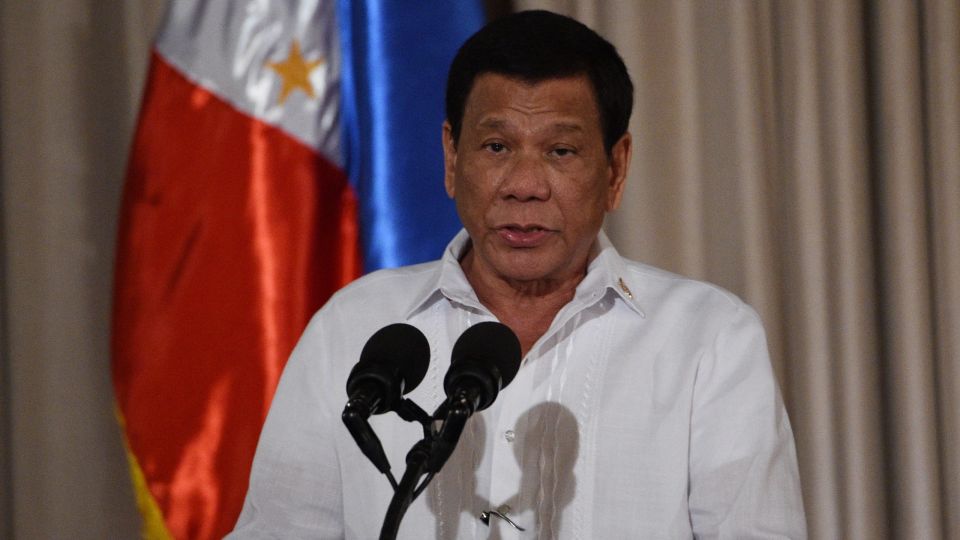May 2, 2019
The president said he would work hard to protect workers rights to self-organize.
President Rodrigo Duterte asked Congress on Wednesday to pass measures that would protect workers’ right to security of tenure and self-organization, a move that labor leaders said was meant to quell the anger of protesters who marched on Labor Day.
In his Labor Day message, the President paid tribute to the workers’ contribution while lamenting that the plight of most of them, especially those who leave to work overseas, had not changed much.
But he said he believed improvement in their working conditions could still happen.
“I remain optimistic that one year since I issued Executive Order No. 51 implementing existing constitutional and statutory provisions against illegal contracting, my counterparts in Congress will consider passing much-needed legislative measures that will fully protect our workers’ rights, especially to security of tenure and self-organization,” he said.
Mere words
This was not the first time that the President promised to have the bill passed, Rene Magtubo of Nagkaisa Labor Coalition told the Inquirer.
“He even certified it (last year) as urgent,” Magtubo said.
“What we want from him are not words but concrete instructions ordering his allies in the Senate to pass the bill,” he said.
Such words by and from the President are nothing if the bill does not pass, said another Nagkaisa leader, Sonny Matula. He noted that only a few days were left before the legislative session would adjourn.
Instead of making empty promises, Matula said the President should direct Labor Secretary Silvestre Bello III to sit down with administration allies in the Senate.
“He should instruct his labor secretary and legislative liaison to follow through on his orders,” Matula said in a separate interview.
“If this bill does not pass, then the President is a failure,” he added. “The people would get angry.”
Matula said the President nudging Congress to pass the bill was his way of protecting his candidates in the May 13 midterm elections from the wrath of disappointed laborers.
On Tuesday, Nagkaisa and Kilusang Mayo Uno joined forces and called on their supporters and members not to vote for and campaign against candidates who were antilabor.
Security of tenure
The security of tenure bill has been approved on third reading in the House of Representatives but has languished in the Senate despite being certified urgent by the President in September.
Sen. Joel Villanueva, chair of the Senate labor committee, had earlier expressed optimism that the bill could be passed on third reading in the chamber and approved by the bicameral conference committee before the 17th Congress adjourned for good in early June.
On Wednesday, at least three senators — Villanueva, Miguel Zubiri and Richard Gordon — had committed themselves to pass the measure by the end of the 17th Congress, Bello told reporters during the Labor Day celebrations in Pampanga province.
The Associated Labor Unions-Trade Union Congress of the Philippines has criticized the Department of Labor and Employment (Dole) for supposedly not doing enough to lobby for the passage of the measure.
End ‘endo’
Bello pointed out though that what the department lacked was not the initiative to push for the measure but “time.”
On Labor Day, Vice President Leni Robredo renewed calls to end labor contractualization.
“We should unite to end ‘endo’ and contractualization,” Robredo said in a statement. “Uphold safe, honorable and regular jobs for Filipino workers.”
Endo, shortcut for end of contract, refers to a short-term employment practice, often less than six months to avoid giving workers regular employee status and benefits.
Under the Labor Code, endo is illegal.
Unfulfilled promise
According to Nagkaisa, ending contractualization remains to be one of the President’s “greatest unfulfilled promises.”
It said that if the administration was really serious in its desire to improve the lives of workers, it should “pressure” its Senate allies to come up with the measure addressing this long-standing labor issue.
The group took exception to a statement of Sen. Cynthia Villar, an administration ally, that “delaying” tactics had “stalled the process.”
Nagkaisa said it had asked Villar what her problems were regarding the measure but it was not provided details.
Scaring investors
Malacañang hit back at labor groups that had taken the President to task for failing to fulfill his promises, saying their actions could scare off investors and lead to job losses.
Presidential spokesperson Salvador Panelo said the nationwide protests of groups such as Kilusang Mayo Uno would keep on blaming the administration for various labor problems.


